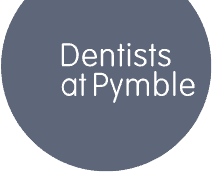What you need to know about a crack in a tooth and more…
Often when people hear the term ‘cracked tooth’, they paint an image in their head of what this may look like.
However, a cracked tooth isn’t always as straight forward as it sounds.
It is actually quite a complex dental condition.
At, Dentists at Pymble, we think it is important for everyone to understand what a cracked tooth is. And most importantly to also know the symptoms and signs to look out for. This is because if a tooth has a crack, the earlier it is diagnosed and treated the better the outcome for you.
Why would a tooth crack?
Cracks, fractures, craze lines and splits can occur in teeth for a few reasons.
This includes:
- Large or deep fillings
- Trauma due to an injury or a knock to a tooth
- Fatigue and stress related to your bite (occlusion), clenching or grinding
- Habits, such as chewing hard things like ice or a pen
Over time these things can weaken a tooth and can cause cracks to form.
However, the issue is that when there are is a crack in a tooth, unfortunately often we do not know how deep the crack goes. But we also don’t where the crack may eventually travel to or how long it will take to progress.
At, Dentists at Pymble, we like to think of cracks in teeth, like a crack in the windscreen of your car. As when you have a crack in your windscreen it can start off quite small but sometimes it can start to spread, and we don’t know where it will spread or how long that will take.
But what we do know is that when people start having symptoms it is a sign that the crack is starting to progress.
What are the symptoms of a cracked tooth?
There are a few signs or symptoms which can indicate that a tooth may have a crack or that a crack may be starting to move or progress.
This includes:
- Sharp pain when biting or when releasing after biting
- Sensitivity or discomfort to hot and cold food and drinks
- Sensitivity to sweet or acidic foods and drinks
- Waking with pain in a tooth after sleeping
How can Dentists at Pymble diagnose a cracked tooth?
Your dentist is the best person to diagnose a crack in your tooth. They will use their clinical expertise and your symptoms and dental history to help do this.
Firstly, they may find the crack during your routine dental examination or check-up… as they can see it. Alternatively, they may use special dental instruments and tests which can help to find a crack.
Or if you have symptoms, then that too can help to diagnose a tooth as having a crack in it.
Can cracks be seen on x-rays?
Unfortunately, cracks in teeth cannot be seen on x-rays. This is due to the size of a crack and the angulation of the x-ray beam.
Can a cracked tooth be treated?
Yes.
However, the treatment of cracked teeth can vary. This is because it depends on how extensive the crack is, where the crack has traveled too and if it has caused any damage to the nerve inside of your tooth.
It is always best to speak directly to your dentist about your options.
But these options may include a filling, or a crown, or something like a dental splint to help reduce the risk of the crack progressing.
At, Dentists at Pymble, we like to assess the crack, your dental history and your symptoms to find the best treatment option for you. From there we like to discuss with you all of your options, considering the advantages and disadvantages of each, the risks and costs.
Can a cracked tooth heal itself?
Cracks in teeth are unable to heal themselves… unlike our bones.
Instead it is about finding ways to prevent the crack from progressing or spreading. And if you are someone who experiences symptoms, sometimes these symptoms may go away or only happen occasionally, but unfortunately the crack will always still be there.
What happens if you don’t get treatment for a cracked tooth?
Whether you decide to treat a cracked tooth is up to you.
Treating a cracked tooth is about trying to reduce or stop the crack from spreading or causing symptoms. However, if a crack in a tooth is left untreated it can continue to spread or progress. But like we mentioned already… unfortunately we do not know where it may go or how long it may take.
In some cases, if left untreated a crack may cause part of a tooth to break away. If this happens often, we can fix it.
But sometimes the crack causes the tooth to break in such a way that we cannot save the tooth, and the tooth may need to be extracted. For example, the crack can cause a tooth to split into two halves below your gum – known as a vertical root fracture.
The other risk is that the crack will reach the nerve inside the tooth. Which can cause infection or damage the nerve of your tooth. If this happens a root canal treatment may be needed if you wish to save the tooth.
When it comes to a cracked tooth early detection is very important.
As early detection can help to reduce your risks for needing more complex dental treatment if the crack progresses.
At, Dentists at Pymble, when you come in for your routine dental examination and check-up, we always like to check your teeth for cracks.
However, if you should ever notice any symptoms, especially if they are getting more frequent or worse, then you should arrange an appointment with your dental professional to have them checked. That way the advice and treatment recommendations can be specifically tailored to you.
Remember… if you have any questions or concerns then we invite you to contact the practice on 02 9488 7555 to arrange an appointment with one of our friendly dentists.
As we are here to help you!
And from everyone at, Dentists at Pymble, we thank you for reading.
References:
- Australian Dental Association. Cracked tooth syndrome. 2004. [Pamphlet].
- Erskine Dental. Cracked tooth syndrome – v10/15. 2011. [Pamphlet].
- Oral Health Foundation. Cracked teeth. URL: https://www.dentalhealth.org/cracked-teeth
- American Association of Endodontists. Cracked Teeth. URL: https://www.aae.org/patients/dental-symptoms/cracked-teeth/
- Simmons SL. Diangosing what it’s cracked up to be: a lesson in endodontics. Dentistry IQ 2017. URL: https://www.dentistryiq.com/dentistry/endodontics/article/16366420/diagnosing-what-its-cracked-up-to-be-a-lesson-in-endodontics
- Hasan S, Singh K, Salati N. Cracked tooth syndrome: overview of literature. Intern J Applied and Basic Medical Research 2015;5(3):164-168. URL: https://www.researchgate.net/publication/281777126_Cracked_tooth_syndrome_Overview_of_literature

